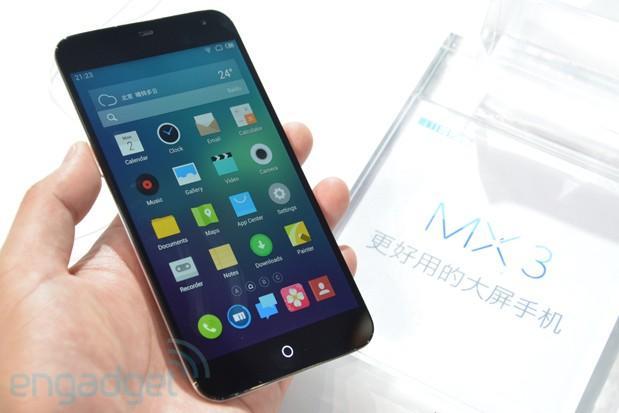
Here in the United States, we're pretty much set and settled into our ways when it comes to a lot of things. The mobile industry is one of those things. For the most part, things remain unchanged. We have four major carriers (although one rebelled and went "UNcarrier" - it's a good thing), Apple releases an iPhone once a year, Samsung releases tons of phones each year, Sony might or might not release a phone, and everybody else gets a hit or miss chance to gain some ground on Apple or Samsung. Yep, it's pretty much the same thing year after year. I'm not saying it's a bad thing, but the U.S. is unquestionably a tough market to break into; one of the toughest, if I'm not mistaken.
But for some folks a challenge is a good thing, and for the people over at Meizu, it's a good time to try and introduce themselves over here in the U.S. According to a report earlier today, the Chinese manufacturer plans to make their U.S. debut during CES 2014. The manufacturer is no stranger to making phones, and from the looks of it they've made some pretty decent rigs in the past (check out their MX3 device) that easily compete with some of our flagship devices we already have here, so being able to fit in isn't the issue. The big issue is going to be trying to convince people here that we should look at their phone over all of the other phones saturating the market; they have to make people see that they can fit in.
Aside from needing to tackle the marketing tactic (which is actually a pretty big deal, especially because most people that aren't paying attention to CES aren't going to know any the wiser that there is a new manufacturer in town), something I think that Meizu will need to do in order to win people over first and foremost is offering phones that hit both sides of the spectrum. Meaning, they should offer low-end devices as well as high-end. Generally speaking, a large number of customers in the U.S. are suckers for high-end devices, that's true. But there's also a pretty significant number of people that are interested in the low-end market, and personally I find it to be an equally important area to tackle.
There are certainly a lot of benefits to making sure that you cover both low-end and high-end. The first thing that comes to mind is that consumers will know that you're there for them rather than just for a profit, in a sense - there's not a certain social stigma attached to having just high-end devices or just low-end devices. And, to make it clear, just because a device is considered "low-end" doesn't make it a bad phone, it just won't have the greatest specs. You can still have a "low-end" phone that runs perfectly well, but designed to be a more wallet-friendly purchase. A lot of people just don't need the extra bells and whistles that come with a high-end device, so they're an important group to get friendly with.
On the flipside, by offering a high-end device Meizu would be able to get people who are a little more picky a reason to notice them as well. And really, as long as the phone has competitive specs and runs fast techies will be all over it. Even if the phone isn't made out of the most expensive material, there's been a lot of debate lately whether a phone made out of plastic is actually a bad thing or not. As we can see with Samsung devices, having cheaper plastic housing doesn't really mean a whole lot in the end. Obviously, Samsung has been able to make it pretty far with what they've been doing - the numbers don't lie.
I'm eager to see what Meizu has to bring to the table, as well as how it will compete with what already established manufacturers in the U.S. have to offer next year. I always hope the best for a company broadening their horizons. I just get nervous when it comes to the fact that sometimes companies that try to start up here end up getting completely ignored by our predominately unchanging ways. We're kind of like hobbits.

Maybe after second breakfast we'll be feeling a little more audacious.
Readers, what do you think about this new company entering the U.S. market? Do you think they should offer low and high-end devices, or do you think they should target one end rather than the other? Let us know your thoughts in the comments below!
Image via Engadget